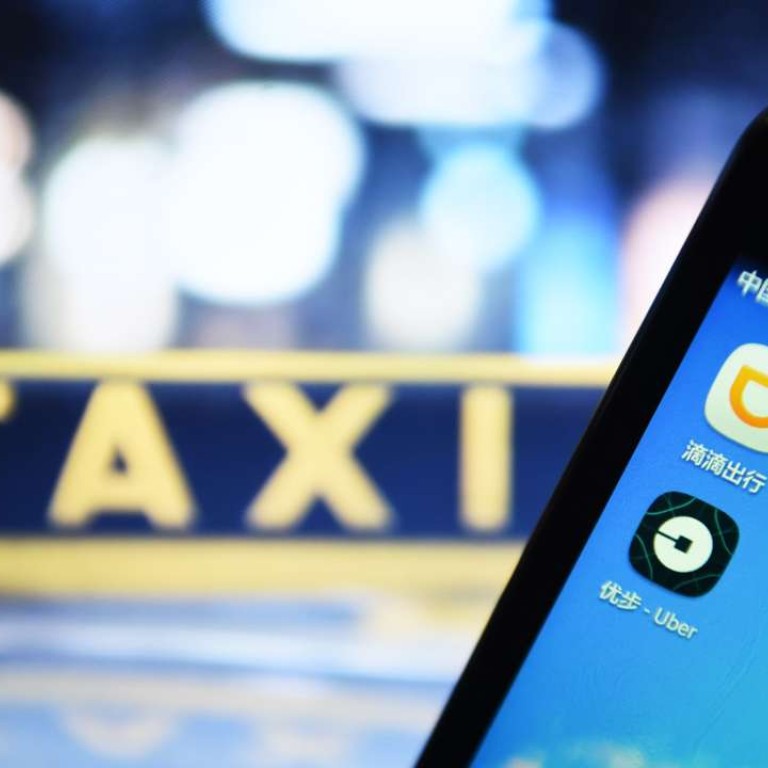
Here’s what the international media are misreading in Uber’s exit from China
Uber was doomed to exit from a market where it did not have monopolistic control
Uber came and saw, but didn’t quite conquer. The global ride-hailing business might grow to be as valuable as e-commerce so it is no surprise that Uber tried to monopolise it everywhere. The announcement on Monday that Uber will sell its Chinese operations to rival Didi Chuxing for a 20 per cent stake was portrayed by mainstream media as another tale of a US technology firm surrendering to Chinese government policies favouring home-grown companies.
Uber was betting that because they had raised a lot of capital and could outspend and vanquish the competition
But changes in the way tech start-ups are funded mean they can remain privately controlled for long periods rather than publicly listed. It has spawned multibillion dollar enterprises and created tempting opportunities and steep risks. Seeking that elusive global internet monopoly is like a holy grail. Eventually, market forces and wild ambitions collide with government policies.
The US$2 billion Uber spent tackling China is now worth about $7 billion in the merged entity. A higher valuation coincided with the Chinese government legalising car hailing apps last week. In a June, 2015 investor presentation, Didi estimated that the Chinese ride hailing market could be worth $50 billion annually by 2020. If Didi grows into one of China’s largest tech companies, it will be an attractive candidate for an initial public offering. Didi will also invest US$1 billion for an equity stake in Uber’s global business.

The truce effectively ends Uber’s uncertain and internecine battle to dominate ride apps in China. Uber can focus on other important markets such as India and Indonesia. And it allows them to concentrate on core technologies such as mapping data and self-driving cars.
The fund raising trail reveals the pressure on startups that are fortunate enough to be able to raise billions. In June, Didi raised more than US$7 billion comprising: US$4.5 billion from investors including US$1 billion from Apple, and US$2.8 billion in debt. The company was valued at more than US$25 billion with more than US$10 billion of cash after the funding.

That funding round was completed just two weeks after Uber attracted US$3.5 billion from Saudi Arabia’s sovereign wealth fund. Uber’s fundraising has valued it at US$62.5 billion making it the world’s most valuable start-up.
Plentiful funding and aggressive discounting ignited explosive growth in riders and drivers. Didi claimed 14 million daily riders and 300 million users. Uber China boasted 150 million users per month.
Despite spending US$1 billion subsidising rides last year in China, Uber was thwarted by Didi’s domestic advantage and well funded investors such as Alibaba, Tencent and Apple. Didi’s war chest of US$10 billion presented a stiff challenge to Uber China’s own US$1.2 billion.
Whether or not the Chinese government legalised the ride hailing app industry based on a policy decision that its leading national champion would no longer face competition by Uber is probably not as important as Uber’s two year price war with no end in sight. But China now has achieved a resolution where Didi’s ownership structure is like Alibaba or Baidu- majority Chinese controlled with minority foreign investment.
The Chinese government seems to favour this kind of arrangement as it also fulfils their high priority for tax collection. The foreign minority owners will seek to maximise the combined businesses’ dividends (after tax). Therefore, they will demand an accurate reporting of profits. So tax revenues should more or less reflect the true condition of the business.
These large private funding levels represent a major break from the traditional pressure on start-ups to publicly list for fresh money as soon as they are ready. But relying on super-sized private placements from institutions also creates a bias towards irrational valuation and expectation levels. In order to build up a cash pile for ambitious expansion management comes under tremendous pressure to dazzle investors with any kind of story that closes the deal.
The inability to make a profit ultimately limits them and the raising of more capital. Uber was betting that because they had raised a lot of capital and could outspend and vanquish the competition. Massive fund raisings might create a monopolistic situation whereby it would deter any capital going to competitors. However, it only works when their competitors could not do the same thing.
Uber is not necessarily the overall loser in this deal. They couldn’t dominate the Chinese market. They didn’t achieve their field of dreams. But they did much better compared to not entering China.
Peter Guy is a financial writer and former international banker
Editor’s note: Alibaba is the owner of the South China Morning Post

